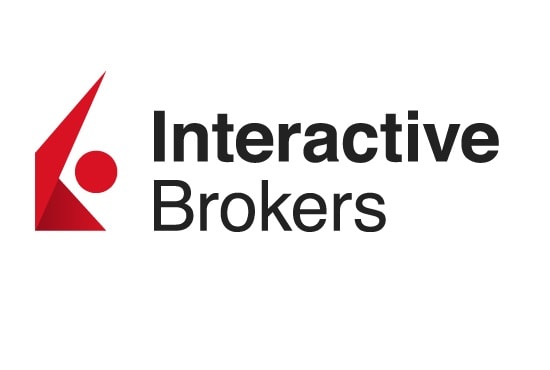Charles Schwab | Vanguard | |
Monthly Fee | Up to 0.80%
$0 online commission on U.S. listed stocks, mutual funds and ETFs, options: $0.65 per-contract, Schwab Intelligent Portfolio – 0%, Schwab Intelligent Portfolios Premium – One-time planning fee: $300 + Monthly advisory fee: $30, Schwab Wealth Advisory: up to 0.80% | Up to 0.30%
$0 online commission on U.S. listed stocks, mutual funds and ETFs, options: $0.65 per-contract, Vanguard Digital Advisor – 0.015%, Vanguard Personal Advisor: 0.03%, Vanguard Personal Advisor Select: up to 0.03%, Vanguard Wealth Management: up to 0.03% |
Account Types | Brokerage, Retirement, Wealth Management | Brokerage, Retirement, Wealth Management |
Savings APY | 0.05% | 3.65% |
Minimum Deposit | $0 – $500,000
$0 for brokerage account, $5,000 for Schwab Intelligent Portfolios, $25,000 for Schwab Intelligent Portfolios Premium, $500,000 for Schwab Wealth Advisory | $0 – $5M
Vanguard Brokerage: $0,
Vanguard Digital Advisor: $100,
Vanguard Personal Advisor: $50,000,
Vanguard Personal Advisor Select: $500,000,
Vanguard Wealth Management: $5M |
Best For | Active Traders, Retirement, Robo Advisor | Long Term Investors, Retirement, Robo Advisor, Wealth Management |
Read Review | Read Review |
Schwab vs. Vanguard: Compare Features
Schwab offers a more comprehensive suite of brokerage services, including robust cash management options and an advanced trading platform with powerful analytical tools.
Vanguard | Schwab | |
|---|---|---|
Investing Options | Full Access To Almost Any Asset | Full Access To Almost Any Asset |
Investing Types | Stocks, Options, ETFs, Bonds & CDs, Mutual Funds, Money Market Funds | Stocks, Options, Futures, ETFs, Bonds & Fixed Income, Forex,Mutual Funds, Money Market Funds |
Automated Investing | Yes | Yes |
Paper Trading | No | Yes |
IPO Access | No | Yes |
Dedicated Advisor | Yes | Yes |
Tax Loss Harvesting | Yes | Yes |
On the other hand, Vanguard stands out for long-term, cost-conscious investors, offering a low-cost structure, an extensive selection of low-fee funds, and robust retirement planning tools.
-
Self Investing And Fundamental Analysis Options
There is no clear winner when it comes to self investing as both Schwab and Vanguard offer great tools for investors.
Ideal for long-term investors, Vanguard provides access to a wide range of assets, including ETFs, mutual funds, stocks, bonds, and CDs.
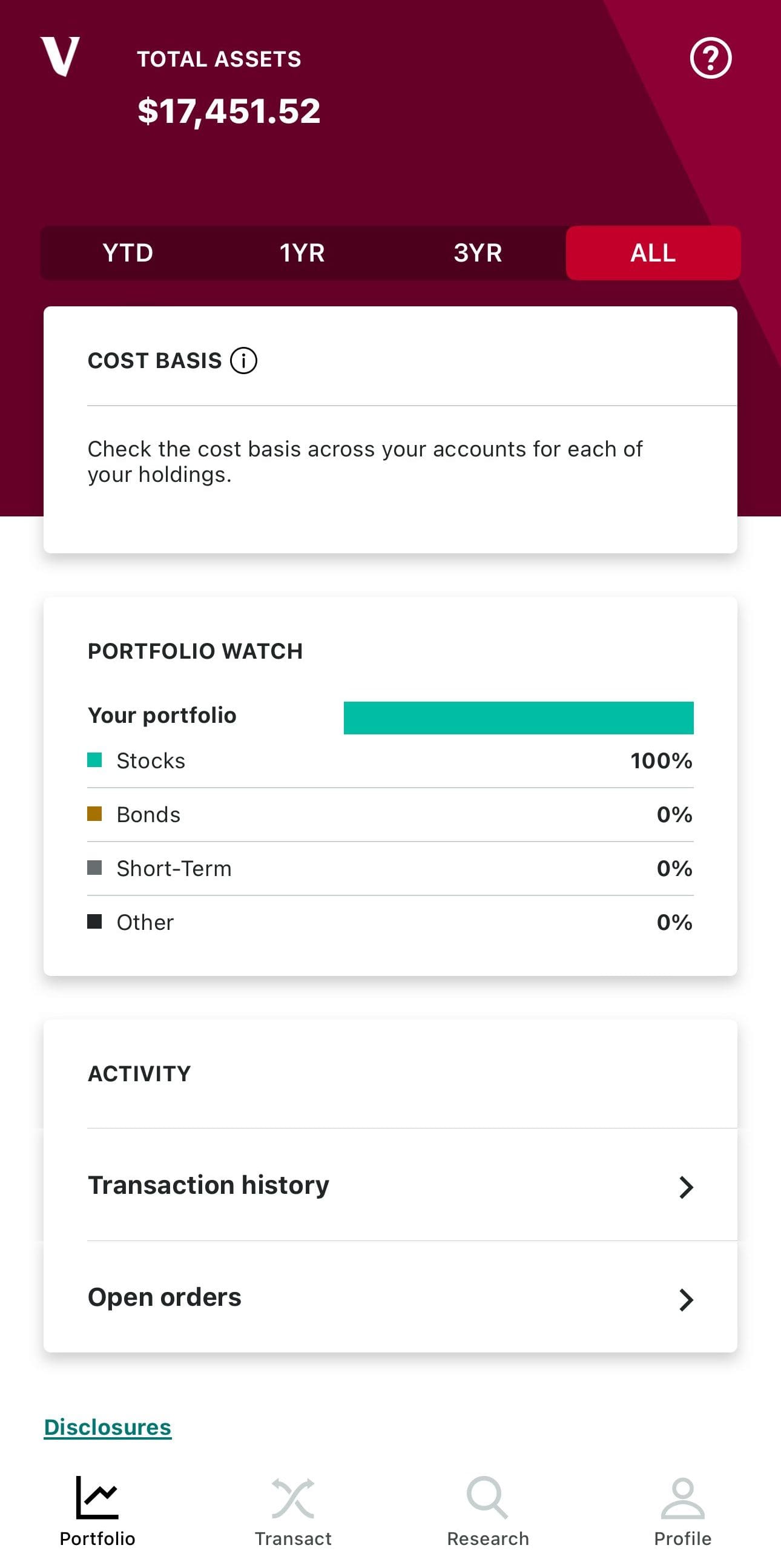
Their value-focused tools—such as Portfolio Watch, Portfolio Tester, cost basis analysis, and target mix analysis—are essential for long-term investors aiming to optimize their portfolios.
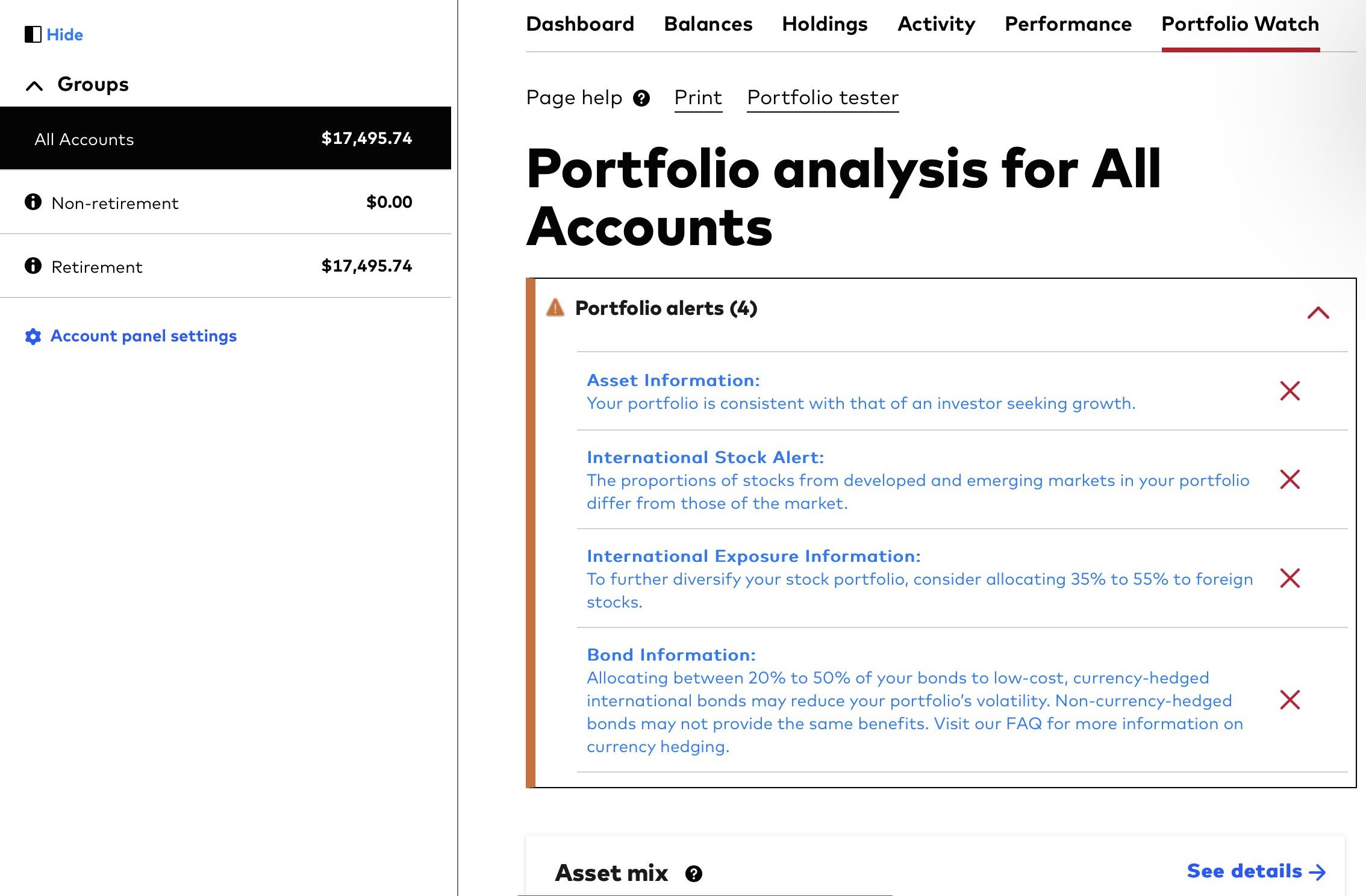
When it comes to fundamental analysis, Schwab excels with its research tools, offering insights from the Schwab team alongside expert commentary.
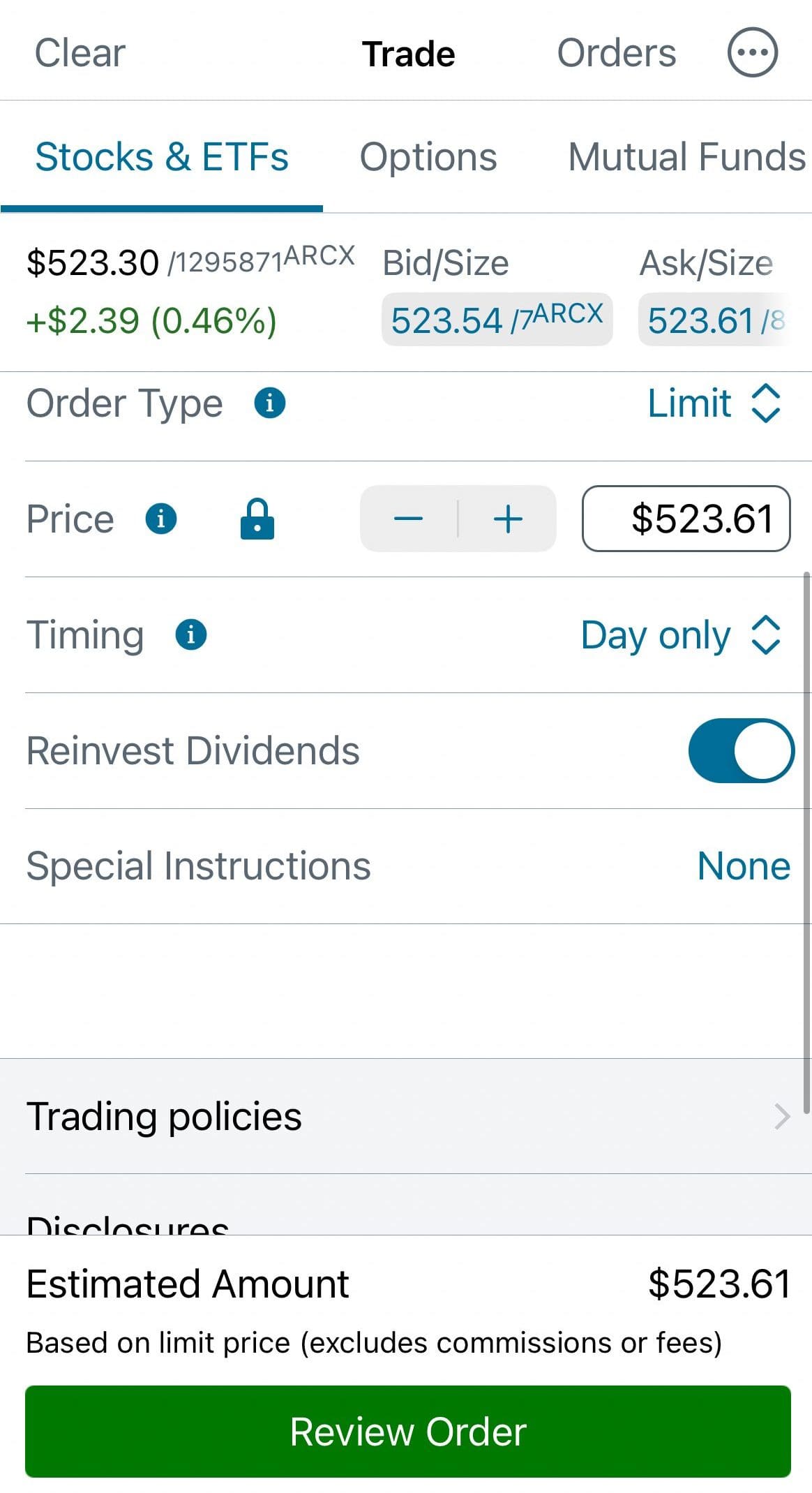
Investors can access real-time alerts, stock screeners, and extensive educational resources to enhance their trading strategies.
-
Trading Options And Technical Analysis Tools
Schwab is our winner when it comes to technical analysis, as it stands out with its robust trading platform, Thinkorswim.
The Schwab Thinkorswim platform is tailored for active traders looking for comprehensive trading options and advanced analytical tools to help them analyze stocks, options, futures, and forex.

Thinkorswim includes robust charting capabilities, allowing users to create custom charts with a wide range of technical indicators drawing tools, and studies. This makes Schwab a better fit for active traders who seek sophisticated market insights.
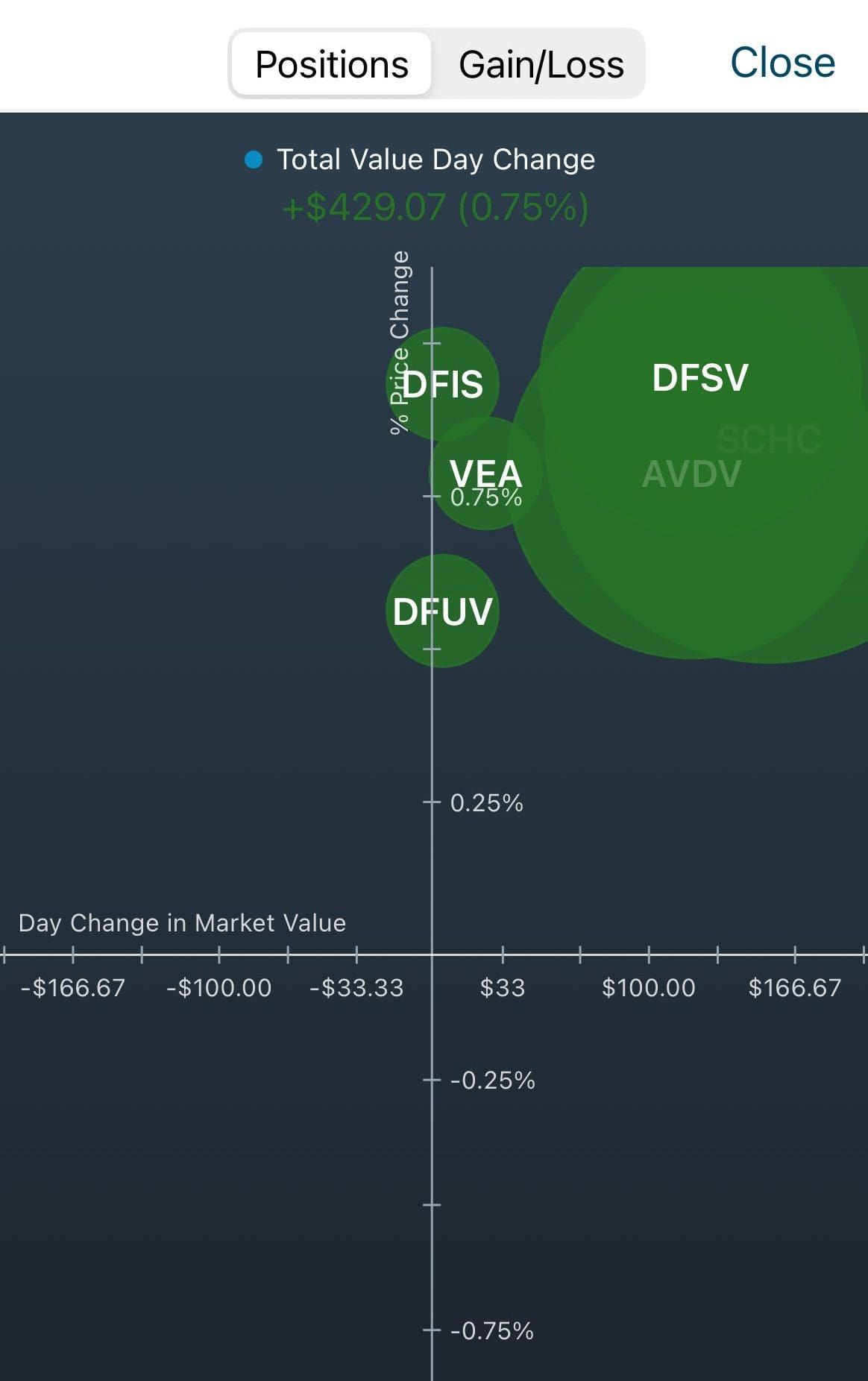
While Vanguard prioritizes low-cost investing and straightforward trading options, its platform is relatively basic.
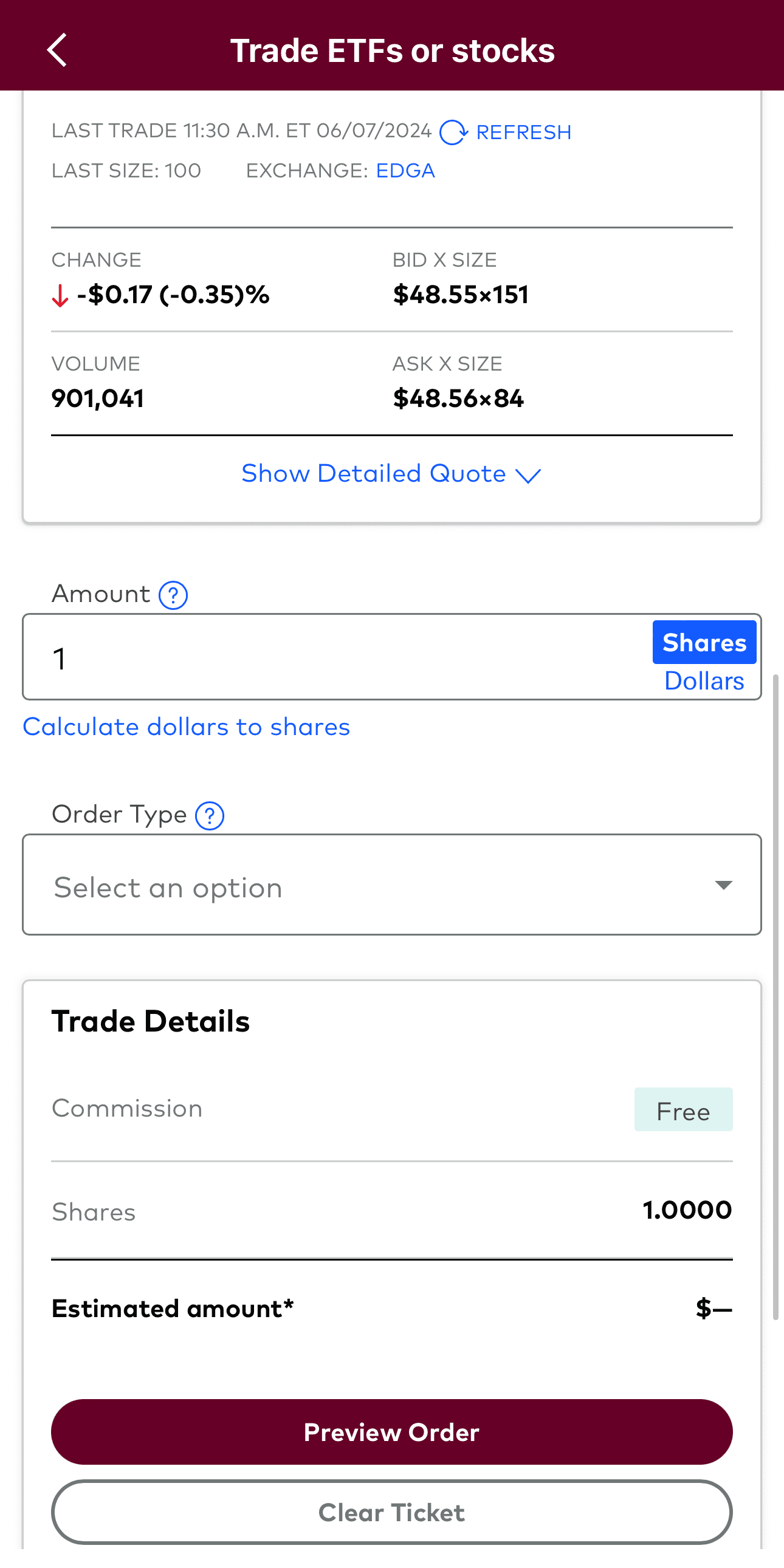
Although it provides essential tools for fundamental investors, it lacks the advanced trading features that active traders might find with platforms like Schwab, which delivers a superior trading experience.
-
Robo Advisor And Automated Investing
Both Scwab and Vanguard offers great robo advisory options.
For hands-off investors, Vanguard Digital Advisor offers automated investment strategies using Vanguard index funds and ETFs, creating a balanced portfolio based on risk tolerance.
For those seeking a hybrid approach, Vanguard’s Personal Advisor combines automated technology with professional financial guidance.
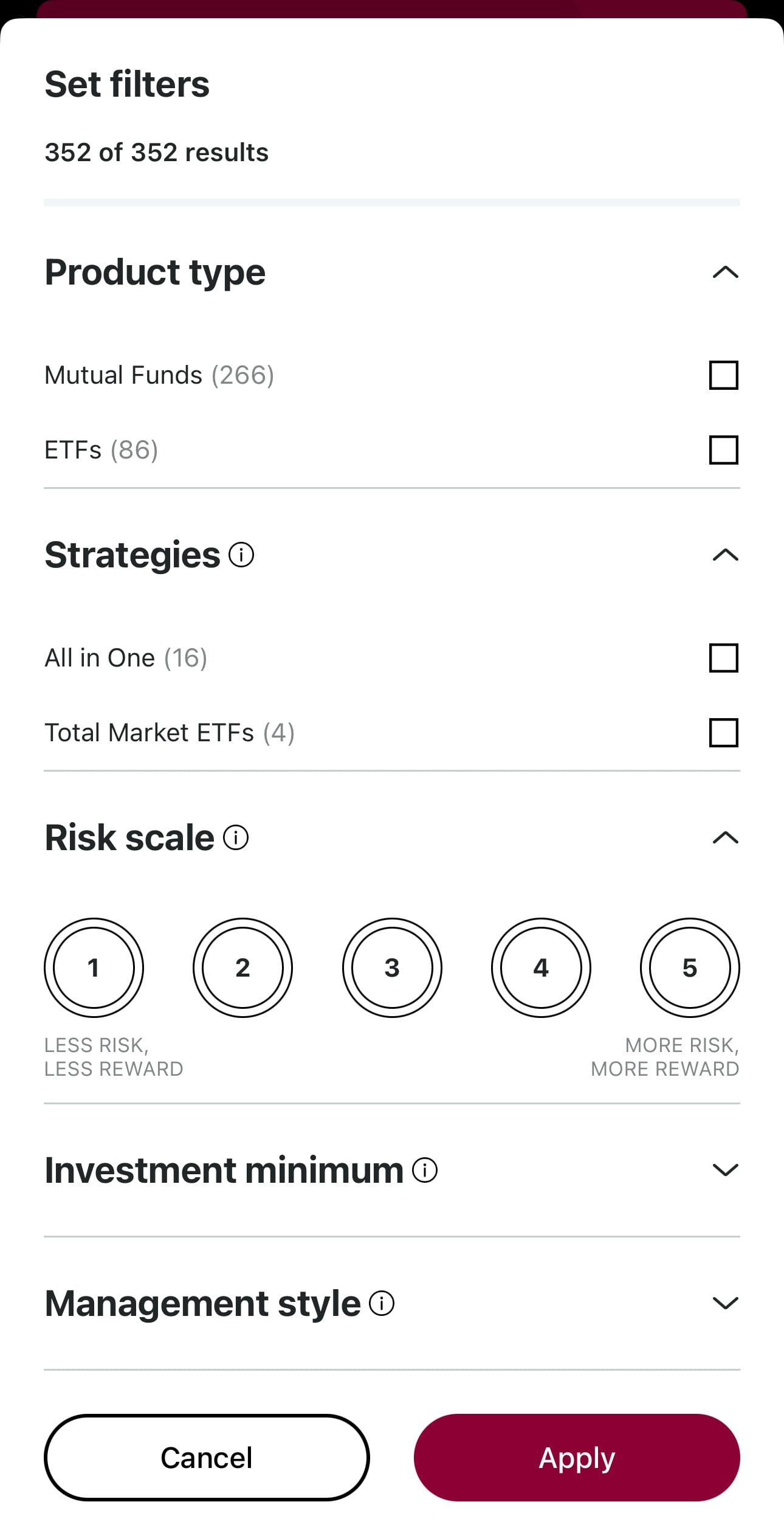
On the other hand, Schwab’s Intelligent Portfolios offers a more flexible robo-advisory experience with no management fees.

It requires a higher minimum investment of $5,000 but includes 24/7 access to live support, and provides features like automatic rebalancing and tax-loss harvesting, enhancing overall portfolio management.
-
Retirement Accounts
Also when it comes to retirement, there is no clear winner between them.
Schwab provides a more diverse range of retirement accounts, including traditional, Roth, rollover, SEP, and Simple IRAs. This variety is appealing for small business owners and those who want flexible options tailored to their specific needs.

Vanguard , on the other hand, range of traditional and Roth IRAs, SEP IRAs, and SIMPLE IRAs—paired with low-cost index and target-date funds.
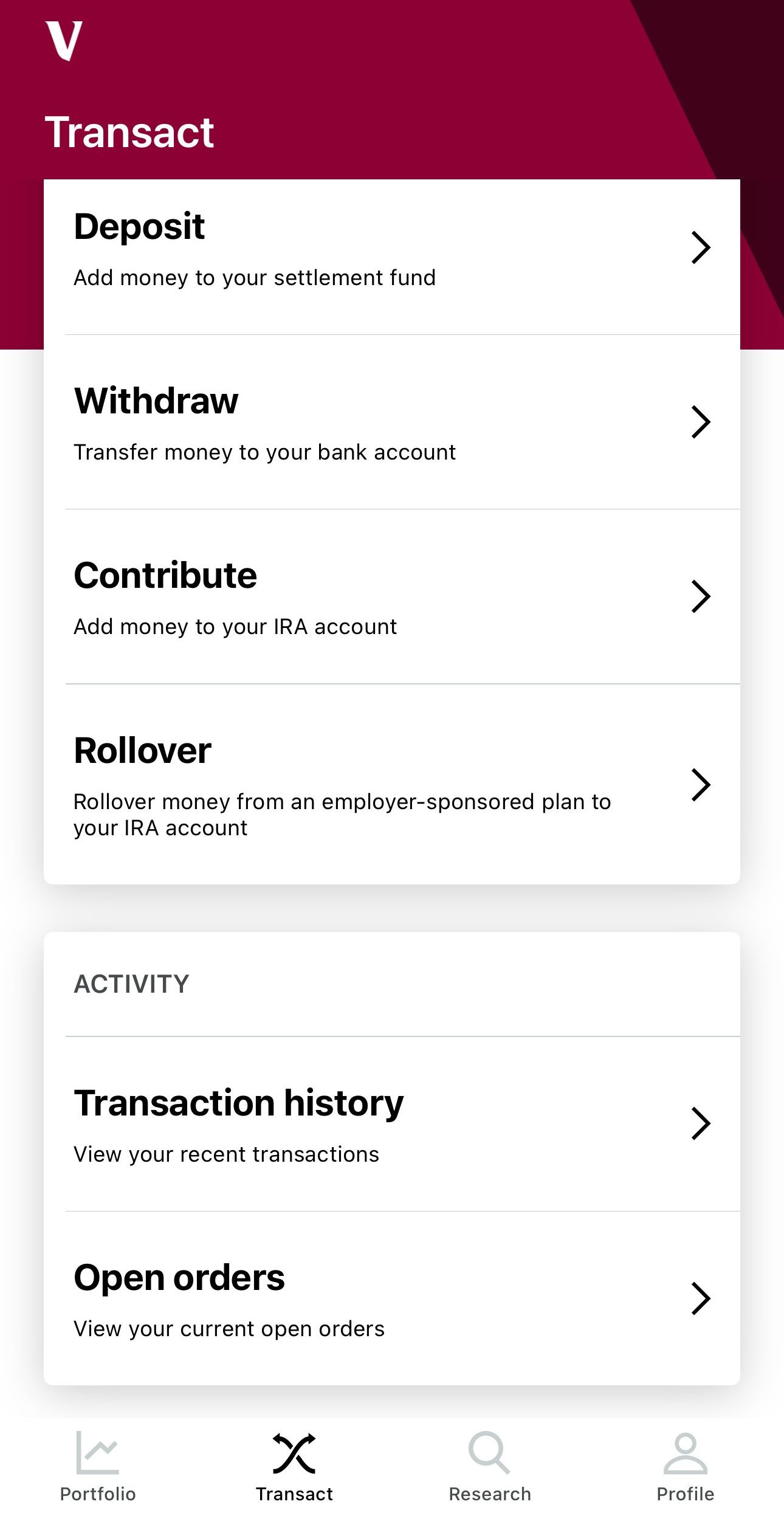
It makes it ideal for long-term retirement strategies, supported by goal-setting, expense estimation, and contribution tracking.
-
Fees
When it comes to fees, both platforms offer similar conditions.
Vanguard and Schwab both offer commission-free trading for U.S. stocks, ETFs, and mutual funds, with options trading at $0.65 per contract.
Vanguard | Schwab | |
|---|---|---|
Fees | Up to 0.30%
$0 online commission on U.S. listed stocks, mutual funds and ETFs, options: $0.65 per-contract, Vanguard Digital Advisor – 0.015%, Vanguard Personal Advisor: 0.03%, Vanguard Personal Advisor Select: up to 0.03%, Vanguard Wealth Management: up to 0.03% | Up to 0.80%
$0 online commission on U.S. listed stocks, mutual funds and ETFs, options: $0.65 per-contract, Schwab Intelligent Portfolio – 0%, Schwab Intelligent Portfolios Premium – One-time planning fee: $300 + Monthly advisory fee: $30, Schwab Wealth Advisory: up to 0.80% |
When comparing robo-advisors, Schwab Intelligent Portfolios is more cost-effective with no management fee, while Vanguard's Personal Advisor charges up to 0.30%.
Schwab Wealth Advisory, by comparison, can charge up to 0.80% of assets.
-
Cash Management And Savings Rates
Schwab is a clear winner when it comes to banking and cash management options.
Vanguard | Schwab | |
|---|---|---|
Savings APY | 3.65% | 0.05% |
Schwab excels at providing a comprehensive cash management experience. Its Schwab Bank Investor Checking account has no monthly fees, unlimited ATM fee rebates worldwide, and no foreign transaction fees.

However, Schwab's interest rates on univested cash is quite low.
Vanguard offers the Cash Plus Account, which earns competitive interest on balances and operates similarly to a traditional checking account, providing features like online bill pay and check-writing.
-
Wealth Management Options
Schwab is our winner when it comes to wealth management, as it offers more options for different types of balances.
Schwab’s Wealth Advisory service provides personalized investment strategies developed by certified financial planners, focusing on long-term goals and tailored portfolio management.
For those with more substantial portfolios, Schwab Private Client Services and Schwab Private Wealth Services provides dedicated access to a financial advisor, enabling customized advice and planning tailored to individual financial situations.
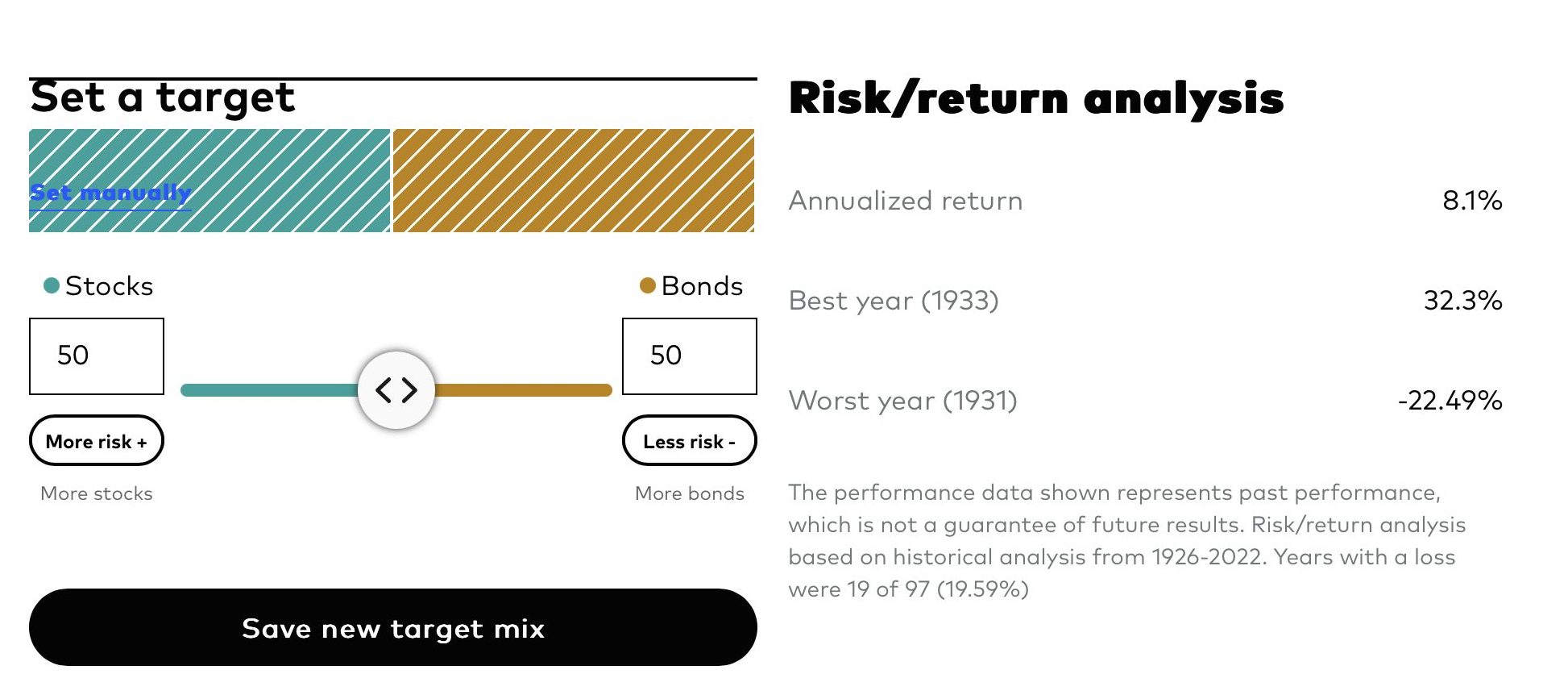
Vanguard’s Wealth Management services cater to investors with at least $5 million, offering long-term financial planning, investment management, and estate planning with personalized strategies designed to minimize taxes.
Bottom Line
While Vanguard appeals to buy-and-hold investors who prefer a more passive approach, Schwab’s platform is designed for those who want to engage actively with the market with great trading platform.
Vanguard interest on univested cash is higher, while Schwab banking options are broader.
How Schwab Compares to Other Online Brokers
Schwab offers more options for investors, including robo advisors and wealth management, while Robinhood is best for beginners and traders.
Both Schwab and Fidelity offer great options for traders, plans for wealth management, and sophisticated auto-investing platforms.
Schwab provides broader tools and analysis options for long-term, value investors, while Interactive Brokers is more suited to active traders.
Schwab vs. Interactive Brokers: Which Brokerage is Right for You?
Schwab is our pick for long-term investors, wealth management, or retirement. E-Trade may be better for traders and cash management.
Schwab surpasses JPM self-directed in most categories, including self-directed investing, robo advisory, and technical analysis.
Schwab vs. J.P. Morgan Self-Directed: Which Brokerage Is Best?
Schwab is our winner for investors and traders. However, the differences between brokerages are not significant. Here's our comparison:
Vanguard vs. Competitors: How Does It Stack Up?
Vanguard is our pick for long-term investors, wealth management, or retirement, while E-Trade may be better for traders active investors
Vanguard may be a better option for value, long-term investors, while Merrill offers better trading options. Here's a side-by-side comparison
Vanguard vs. Merrill Edge: Which Brokerage is Right for You?
Vanguard provides more options for investors, while Interactive Brokers offers superior technical tools for active traders
Vanguard vs. Interactive Brokers: Which Brokerage is Right for You?
Vanguard offers more options for investors, including retirement, robo advisors, and wealth management, while Robinhood is best for traders.
Vanguard offers a better approach for serious investors, while JP Morgan's self-directed is better for beginners and advanced traders
Vanguard vs. J.P. Morgan Self-Directed: Which Broker is Best For You?
Fidelity is our choice due to its better retirement options and more extensive trading app. But, the differences are insignificant.


